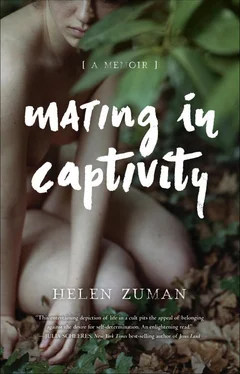Once my notes were neatly sorted, I counted, counted again to check my math, then passed the stack to Karma, folded in half.
Rave looked up. “How much?”
“One forty-eight.”
Karma smiled. “Go, Hellion! Good job!”
“Yeah,” said Donna. “You rocked.”
Rave wiped the sweat from his forehead. “Whew!” he said, handing over his own stack and grinning at me with a mix of relief and mischief. “One fifty-one. For a second there, I thought you were gonna beat me.”
Emboldened by my success on Las Olas, I asked Rayel to send me to Mardi Gras in early March. She laughed. “New Orleans would eat you alive!”
Maybe she believed me when I swore I could brave the challenge. Or maybe Rave convinced her to give me a shot. Either way, I made the list. I’d be one of nineteen Zendiks selling the six-day carnival in two overlapping shifts.
As soon as we arrived in the French Quarter, New Orleans pounced—canines bared, slobber streaming from its mouth. The gutter punks—a loose gang of pierced, tattooed homeless kids with fierce dogs—jeered us and snarled at the sight of our merchandise. (It was they, most Zendiks thought, who had slashed our van tires and siphoned sugar into our gas tanks during previous trips to New Orleans.) A sludge of piss and vomit squelched under my sneakers as I shoved through the crush of drunks on Bourbon Street. (I shouted, “Check out our magazine!” They chanted, “Show your tits!”) The truly smashed—I’d heard from other sellers—sometimes fucked and blew each other in dark alleys and doorways. If you didn’t watch out, you might find your eyes slimed by real-life porn.
Our punishing schedule made us only more vulnerable. Since the Quarter never emptied, it was usually 2:00 or 3:00 a.m. before we staggered back to the van, counted our cash, and drove to our crash pad, a supporter’s one-bedroom apartment. There, sardined on her floor, we grabbed a few hours’ fitful sleep, before rising at 7:00 or 8:00 a.m. to prep for a late-morning or early-afternoon return to the Quarter.
In the van, under the bench seat, was a stack of thick black trash bags. At the end of our final night, we would seal inside them our stinking shoes, our sodden pants—anything wet with the spit of New Orleans—pretending we could repel viral invasion by throwing the clothes and shoes in the washing machine and sending the bags to the landfill. But by that time legions of pathogens would already be bivouacked inside us. Mardi Gras was infamous for getting sellers sick.
Soon after returning home, I would develop a severe sore throat, then a cough that hacked on for a month. The girls would absolve Zendik thus: I’d vibed into my illness by being overambitious, by plunging too soon into too harsh a war zone. The toll on our bodies was yet another cost we couldn’t count if we were to keep faith in selling as the only way to make a living.
Struggling to suck $200 per shift from the frantic bacchanal of the French Quarter, I was being consumed. But not by New Orleans.
Saturday, Sunday, and Monday, two hundred, give or take a few bucks, was all I could manage. But then, on Fat Tuesday—the last day, when throngs of revelers donned masks and costumes—the game changed.
Within minutes of hitting the street, I hit up a couple disguised as the Big Bad Wolf and Red Riding Hood. The Wolf growled something at me through his fanged snout. What did he say? She translated: he wanted both CDs. She reached into her cleavage, pulled out a twenty, and handed it to me. Each day, I tucked the first money I made into the tiny pouch hanging from the necklace I’d received from Arol for my twenty-third birthday, hoping her power would help it multiply. I’d never before filled it with a twenty.
After making more than $80 in my first hour, I was called, around noon, to join eleven other Zendiks in a ring at the intersection of Rue Royale and Rue St. Peter. The sour scent of spilled beer wafted up from the asphalt. Cardboard cups littered the gutters. A frantic eddy of jazz, rock, bluegrass, and zydeco swirled up St. Peter from a cluster of open-front bars already raucous on Bourbon Street. Thick ropes of beads in purple, green, and gold looped almost every neck in the swelling crowd. Within our ring, twelve circle-Zs glittered at twelve beadless throats.
Across the ring from me, Mar—a Kore member, and one of our crew leaders—twisted the lid off a small plastic bottle. She’d bought it at Herbal Imports, a head shop a few doors down St. Peter. The bottle was filled with oblong gray-green pills. Active ingredients: guarana, ephedra. Trade name: TurboCharge. She shook a couple pills into her palm and passed the bottle on.
Zendiks were forbidden pot and hard drugs but allowed caffeine as a spur to harder work. At least one cooler on every Zendik selling trip held a mason jar or gallon jug of black tea. Maybe Mar figured TurboCharge was fine because it hung off the far end of the caffeine continuum. Or maybe she didn’t care where it fell, so long as it raised our totals. Maybe no one at home ever had to know.
I’d never smoked pot or tried any other illegal drug. I’d waited till my twenty-first birthday to take my first drink and had drunk only a handful of times in the couple years since. I’d yet to acquire a taste for coffee, which wasn’t available at Zendik anyway. Black tea hadn’t helped me sell, the couple times I’d tried it. I had no idea how guarana and ephedra would affect me. But after three grueling selling days, with one more to go, I wasn’t about to refuse a boost. I palmed the prescribed two pills and washed them down with a swig of water from the common jug.
The “on” spell that followed exploded my understanding of on-ness. On Las Olas, it had seemed that I could push my targets to do as I pleased. This time, I felt myself immersed with the throngs in a river of sisterly love, where I could reach anyone—couples, packs, women, good-looking men. Here the nos rolled off me, the yeses enveloped me. The current dissolved my warrior stance, leaving my calling voice, my outstretched hand. My tale of life as a gushing adventure, rushing with wonder and magic. The tale that had lured me to New Orleans via Zendik.
But all tales that compel are true at their core, and the core of my high on Fat Tuesday was agape. I would feel it other times, in other places, at Zendik and beyond. I would sense the pulse of all beings. Swell with the joy of communion. Know myself as one drop in a stream of infinite richness.
What role the drug played, I cannot say. Maybe it propped me upright. Maybe it lifted the burden of time, the worry that I’d plummet before the end of the night. Whatever it did, I gave it no credit. I forgot I’d taken it. I believed I’d leaped into Wulf’s “Infinite Instant, where dwell the Heart and Meaning of Life.” What charge I held, what love I shared, welled from Zendik—the new heart, the true meaning, of my life.
I was still high at midnight, when a fleet of police cars roared in to clear the French Quarter with shrieking sirens and a blinding hail of blue light. By then, dozens of Zendik magazines lay scattered in the slime. Many had given us money out of drunken magnanimity, not thirst for our philosophy. But to me, the sodden litter signaled victory. Saturation. You couldn’t look anywhere, even down, without seeing Zendik. From here, I imagined, our message would travel to realms beyond our ken. It would spread to all continents. We’d crashed—and swayed—the carnival at the crossroads of the world.
Back at our place to stay, all twelve of us piled onto a mound of pillows and sleeping bags to watch The Matrix and revel in our smashing Fat Tuesday crescendo. Most of us had broken four hundred. I’d made four sixty. Both crews together, over six days, had grossed $19,500.
Читать дальше











